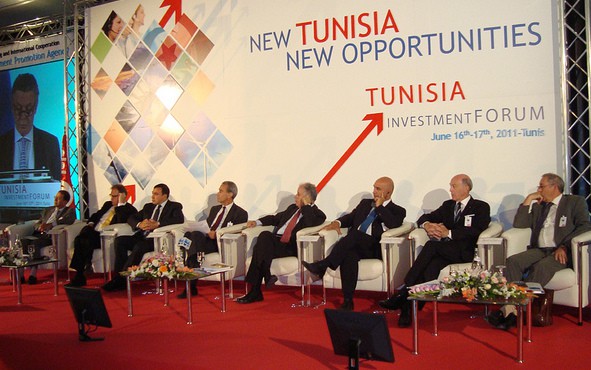Nine Reasons Social Enterprises Should Put Locals in Executive Positions
As an American social entrepreneur living in Uganda, it is easier and often cheaper – because of roots and networks – to hire other Americans. I have an impulse to hire every BCG-HKS–RPCV (Boston Consulting Group-Harvard Kennedy School-returned Peace Corps volunteer) I meet because I have an automatic positive appraisal of the value of a management consultant/Ivy League grad.
Our company (Jibu) has learned, however, that the potential value add of this type of talent is limited if we do not hire local talent to counterbalance executive positions. A centered locus of power between foreign and local is the only way for us to navigate our company’s strategy through foreign culture, customs and policies. Some internal efficiency in communication and goal-setting might be lost in cross-cultural misunderstanding, but a balance of power between ex-pats and locals ultimately means more innovative, substantive and long-term impact.
Here are eight key reasons, plus one ultimate reason, a social enterprise in an emerging market should include local staff in executive positions:
- Intuition. “Street smarts” are as important, if not more important, in an emerging market context than QuickBooks proficiency, an Ivy League degree or high-income-generating experiences. Qualifications like these certainly have immense value, but only if paired with the working knowledge that stems from rooted experience in the operating context. This isn’t a new concept. CEOs of Fortune 500 companies are not valued for their hard skills but for their soft skills: their street smarts, their intuition, their decision-making capacity. Relegating those with know-how/street smarts to bottom or mid-tier positions eliminates the possibility of incorporating their knowledge fully into the strategic direction and culture of the company. There is a low ceiling on the company’s collective intuition and agility if it is not guided at least in part by local executives with fluent knowledge of local context.
- Staff management. “Yes” often means “no,” and agreed-upon deadlines are often not, in fact, agreed upon. These realities are obvious to a local manager, but a foreign manager can easily be oblivious (and likely frustrated). Not only can local executives communicate more clearly to beneficiaries, clients and other local staff, they are best equipped to bridge the gap between company mission and objectives and implementation strategies.
- Networks. Most companies know there is a value to having “political champions,” but most significantly underestimate this value – especially in emerging market contexts. Having key staff who can fluently navigate local political webs increases the ease of doing business. We’ve undervalued this in the past and have spent significant hours “pushing ropes up hills” before realizing just how easy doing business can be with the right allies. There is no easier way to make the right allies than to have the right people on the team, in the right positions.
- Crisis management. Responding and reacting to crises – like theft, death or political disruption – is an area of management that requires instinct. (This ties back into the “intuition” described earlier.) It is an arena that must be navigated quickly and strategically, but is fraught with cultural taboos and public relations landmines that can be invisible to non-native people. Local staff often know intuitively how to respond to and resolve crises, and are often able to spot crises in the first place more quickly than ex-pat staff. Dishonesty, for instance, is something that a local executive may pick up on long before a foreigner gets the first hint.
- Customer/beneficiary feedback loops. Local executives are more in touch with results and can provide a company with quicker feedback loops from beneficiaries/clients. Besides the obvious and immense advantage of knowing local languages, local executives are more likely than ex-pats to be plugged into social channels and media. Market research and surveys are needed, but the immediate feedback required to prototype new initiatives, products and services is far more important.
- There’s no place like home. No matter how meaningful the work, no matter how wonderful the work environment and no matter how perfect the amenities are – there is no place like home. An enterprise composed primarily of ex-pats at the decision-making tier will struggle to find continuity. Just about the time key ex-pat staff get up to speed they will click their heels and head home, job well done. Forget about accomplishing that beautiful, scalable mission if there is no staff continuity.
- Invisible barriers. We’ve witnessed ex-pat-only organizations attract immense negative pushback locally, even if the organization’s mission and general approach is well-founded. Not having liaisons to help message the goals and objectives of the organization to local leaders almost inevitably spawns mistrust. Organizations without local leaders at the decision-making tier may not even realize that their difficulties are an outcome of intentionally erected barricades. Because disagreement and animosity is often indirect and/or silent, the foreign organization will often resort to patronizing conclusions about the backwardness of the local environment and mindsets. If intentional, invisible barricades are erected, better programming and materials won’t work. In fact, nothing will work against an invisible siege.
- The neocolonial effect. The ex-pat bubble – that mini-economy and infrastructure that ex-pat diplomats and businessmen build around themselves to simulate their life back home – has a negative impact on the operating environment around it. In addition to gentrifying local economies, the bubble’s aristocratic amenities and high-demand, low-tolerance treatment of service providers can leave resentment in its wake. It also generates the meta-impact of closed-border nationalistic politics. Many host governments in emerging markets are actually amplifying the difficulty for high-skill foreign workers to attain work permits (which, clearly, only aggravates animosity on both sides and reduces the total number of jobs available). I believe this is due, in part, to the resentment spawned by the roving ex-pat bubble. Having a balance of power between local and foreign executives helps to pop this bubble.
The final, ultimate reason that there should be an ex-pat/local power balance in every foreign-founded organization is because diversity – true political, cultural, ethnic, philosophical and religious diversity – spawns creativity. Diverse backgrounds and worldviews are the ingredients of high-potential innovation and, on the implementation side, diversity acts as a crucible to ensure things are built to last.
Photos courtesy of Jibu
Galen Welsch is co-founder and CEO of Jibu, a social enterprise clean water franchise company.
- Categories
- Social Enterprise



